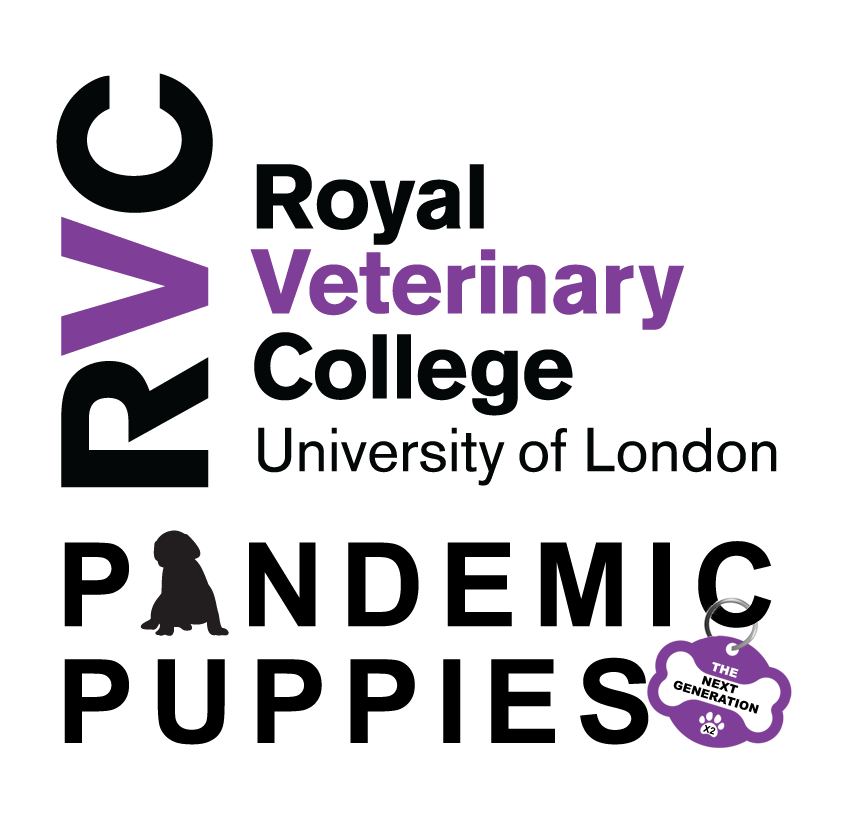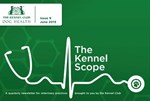Has Covid-19 continued to impact people’s decision-making when it comes to buying puppies?

The Royal Veterinary College launches national follow up survey, “Pandemic Puppies – The Next Generation”, to determine whether the changing factors around the puppy buying process, which influence canine welfare, remained in 2021.
The Royal Veterinary College (RVC) is once again calling on puppy owners to take part in a national online survey to understand the pre-purchase motivations and behaviours of owners of puppies purchased during 2021. Data from the survey, known as “Pandemic Puppies – The Next Generation”, will be used as a comparison to previous years (2019 and 2020), to determine whether the changes in puppy buying in the UK seen during the COVID-19 pandemic have returned to their pre-pandemic baseline or persisted into 2021.
Following the major success of the RVC’s first study in 2020, this follow-up study will investigate the legacy of this period and the future of UK puppy buying culture, particularly given pandemic restrictions continue to lift within the UK.
While many owners were likely making well-intentioned purchases, the demand has inevitably increased the risk to puppy health and welfare. Vets are concerned that the pandemic puppy boom is persisting, consequently adding pressure to veterinary services in the UK. Therefore, the findings of this study will be used to help support owners regarding their dogs’ future welfare as well as informing the approach that key players within the veterinary and animal welfare sectors should take when sharing educational messaging with prospective owners to better promote canine welfare.
Dr Rowena Packer, Lecturer in Companion Animal Behaviour and Welfare Science at the RVC said:
“The COVID-19 pandemic led to changes in the way many of us bought our household goods, with online ordering and delivery a common feature of lockdown life. The pandemic also led to changes in the way the UK bought puppies during 2020, due to the many restrictions to travel and social contact during this period. Many of these so-called ‘Pandemic Puppies’ became much-cherished companions, helping households cope with lockdown life; however, there are concerns that some owners were duped into buying from unscrupulous breeders. We are interested in whether pandemic-related changes in puppy buying persisted into 2021, so we can best support owners of puppies bought during this period going forward. We would love to hear from anyone who purchased a puppy during 2021 to share their experiences.”
Results from the Winter 2020 survey – which involved more than 7,500 respondents – uncovered several changes in buying habits. Owners were more likely to buy a younger puppy, pay a deposit without seeing their puppy, be first-time dog owners with children in their household, and pay more than £2,000. Other factors included owners being more likely to see their puppy without their littermates and collecting their puppy from outside their breeders’ property or having it delivered.
These pandemic-related changes, such as viewing and purchasing puppies online, and having them delivered directly to owners may be perceived as ‘convenient’ by some but in fact, threaten canine welfare. Posing harms to both puppies and breeding dogs, understanding whether this online culture is preferred by consumers, and if so, how to change it to protect canine welfare will be key.
“Pandemic Puppies – The Next Generation” is now open for responses, with findings expected by the summer. Respondents to the online survey must be over 18 years of age, residents in the UK, have brought home a puppy (any breed or cross breed) aged under 16 weeks during 2021, and to have purchased their puppy from a private seller rather than rehomed or bred the puppy themselves.
If you would like more information, please visit: www.rvc.uk.com/Pandemic-Puppies-of-2021-research or to take part in the survey, visit: www.rvc.uk.com/Puppy2021-survey
Notes to editors
Inputs and feedback from the report were provided by an Advisory Committee composed of experts from the Species Survival Commission, the IUCN Commission on Ecosystem Management (CEM), the IUCN Commission on Environmental, Economic and Social Policy (CEESP), TRAFFIC, University of Oxford, WWF International, Argentina’s National Scientific and Technical Research Council, International Institute for Environment and Development. The external revision process benefited also from the collaboration of experts from the University of Oxford and the Centre National de la Recherche Scientifique – UMR ASTRE, CIRAD, INRAE – Faculty of Veterinary Technology, Kasetsart University, Bangkok, Thailand.
For media enquires please contact:
- Jasmin De Vivo or rvc@plmr.co.uk
- Press Line: 0800 368 9520
About the RVC
- The Royal Veterinary College (RVC) is the UK's largest and longest established independent veterinary school and is a Member Institution of the University of London. It was the first in the world to hold full accreditation from AVMA, EAEVE, RCVS and AVBC.
- The RVC is ranked as the top veterinary school in the world in line with the QS World University Rankings by subject, 2021.
- The RVC offers undergraduate and postgraduate programmes in veterinary medicine, veterinary nursing and biological sciences.
- In 2017, the RVC received a Gold award from the Teaching Excellence Framework (TEF) – the highest rating a university can receive.
- A research led institution with 79% of its research rated as internationally excellent or world class in the Research Excellence Framework 2014.
- The RVC provides animal owners and the veterinary profession with access to expert veterinary care and advice through its teaching hospitals and first opinion practices in London and Hertfordshire.


